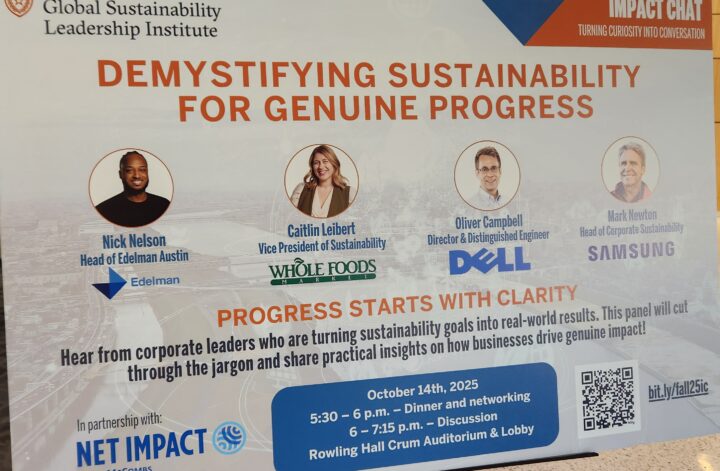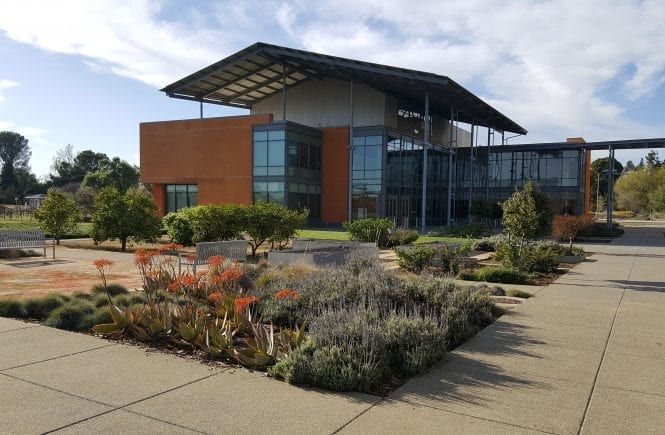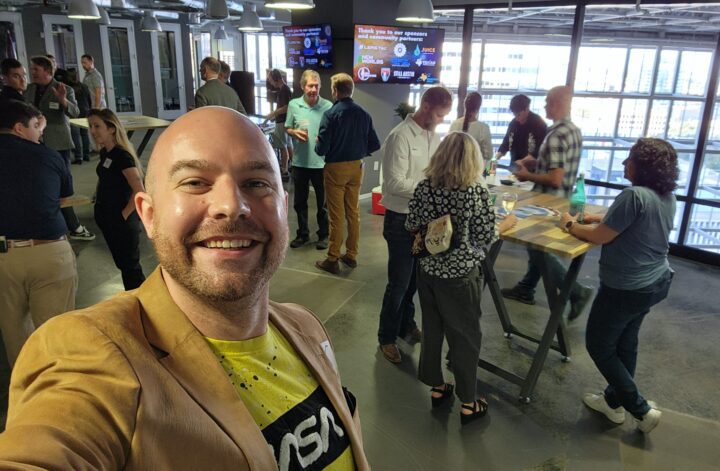Tonight, I had the opportunity to attend “Demystifying Sustainability for Genuine Progress,” a panel hosted by the Global Sustainability Leadership Institute (GSLI) at UT Austin’s McCombs School of Business. The discussion brought together leading voices in corporate sustainability from Samsung, Whole Foods Market, and Dell Technologies, moderated by Nick Nelson, Vice President at Edelman Austin — who, fun coincidence, shares my last name.
The event explored how sustainability professionals cut through complexity and “green noise” to achieve tangible, lasting impact. It was a refreshing and practical look at how real-world businesses are translating sustainability goals into results that matter — for the planet, for customers, and for the bottom line.
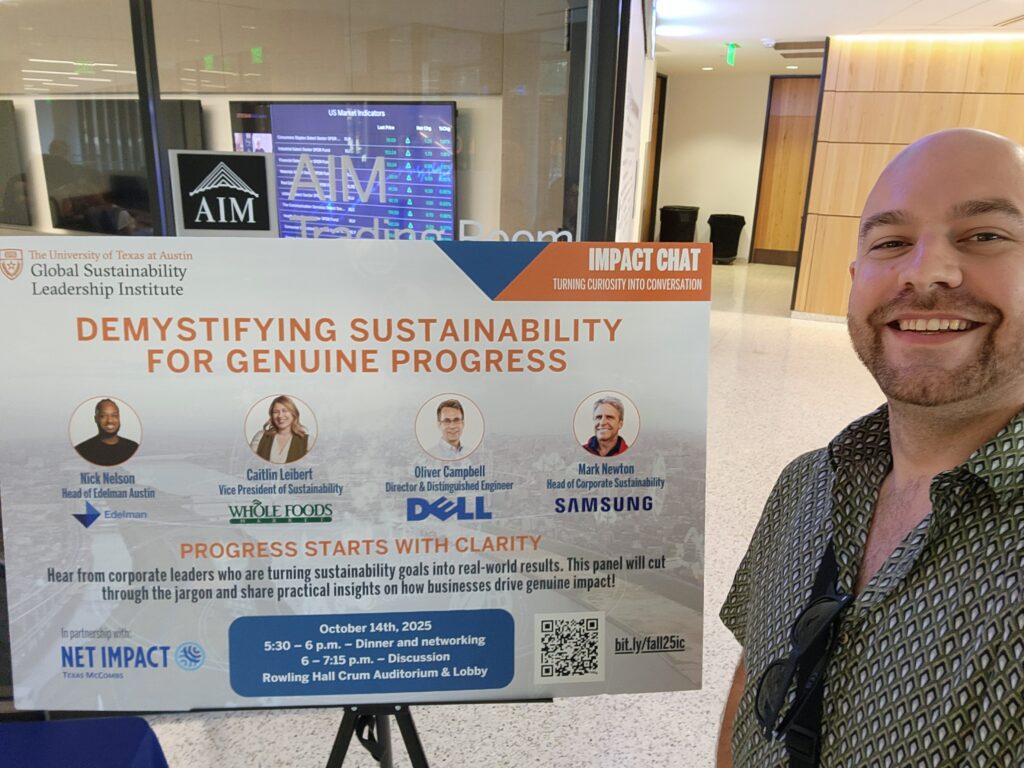
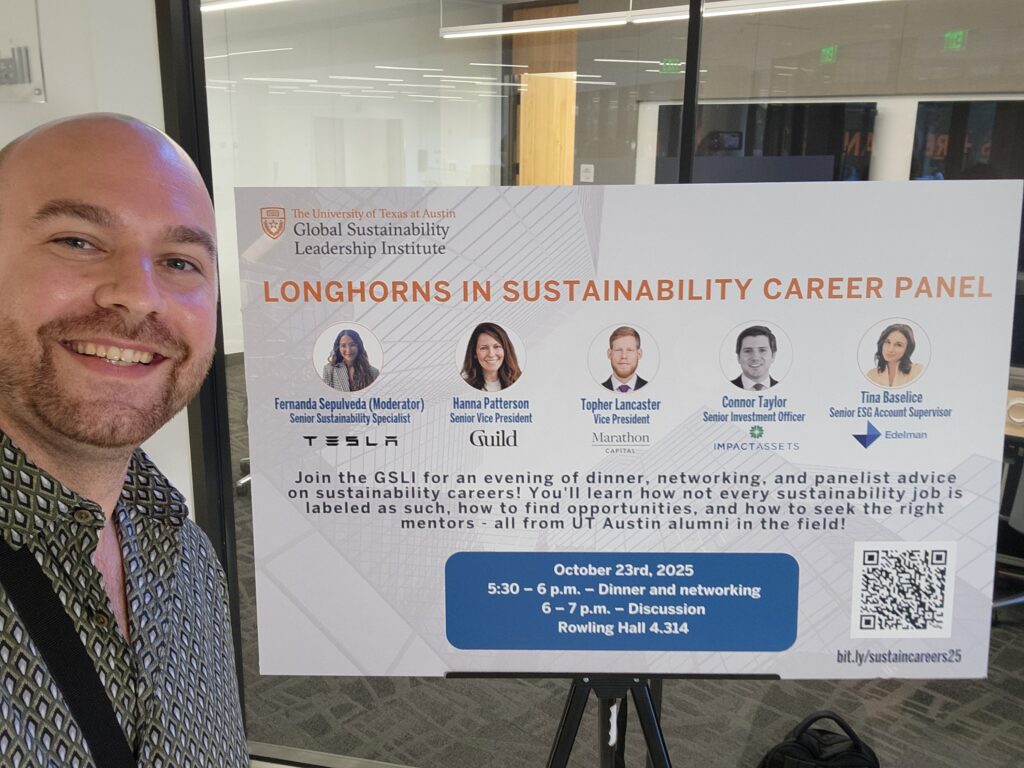
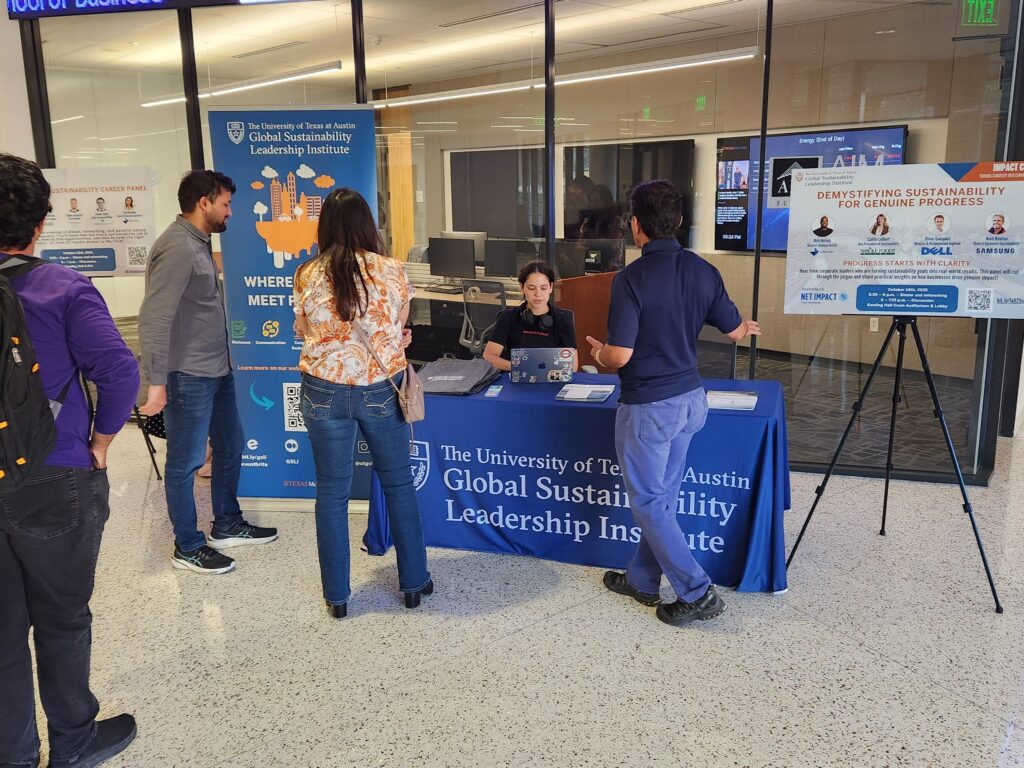
Building Trust Through Communication
Nick Nelson opened the evening by sharing how Edelman’s work is grounded in trust — not just as a PR buzzword, but as the foundation of effective sustainability storytelling. Edelman’s research into global trust trends shapes how they help clients communicate authentically about environmental impact.
Nelson emphasized that communicating sustainability isn’t about staying within an echo chamber of experts; it’s about making these ideas accessible beyond the walls of the sustainability community. Through clear, story-driven messaging, brands can connect with everyday audiences — not just those already fluent in climate or ESG terminology.
Agents of Change: Corporate Sustainability in Action
Each panelist discussed what it means to be an “agent of change” within a large organization — challenging the status quo across operations, manufacturing, product design, and communications.
- Oliver Campbell (Dell Technologies) shared how Dell reimagined its packaging to reduce single-use plastics, replacing them with bamboo-based materials, which now make up about 90% of their packaging. His story highlighted how innovation often starts with rethinking something as simple and essential as materials.
- Mark Newton (Samsung) spoke about Samsung’s vertical integration model, which helps them measure and control their carbon impact more effectively. He underscored the importance of focus, reminding us that sustainability can take countless forms — but to make progress, companies must zero in on areas that truly align with their brand, operations, and customer values.
- Caitlin Leibert (Whole Foods Market) shared an anecdote from Iceland, where she met a cow farmer who, when asked about “climate-smart practices,” simply replied: “I just use common sense.” That line resonated with the room — a reminder that sustainability isn’t always about jargon; it’s about good business sense and respect for natural systems.
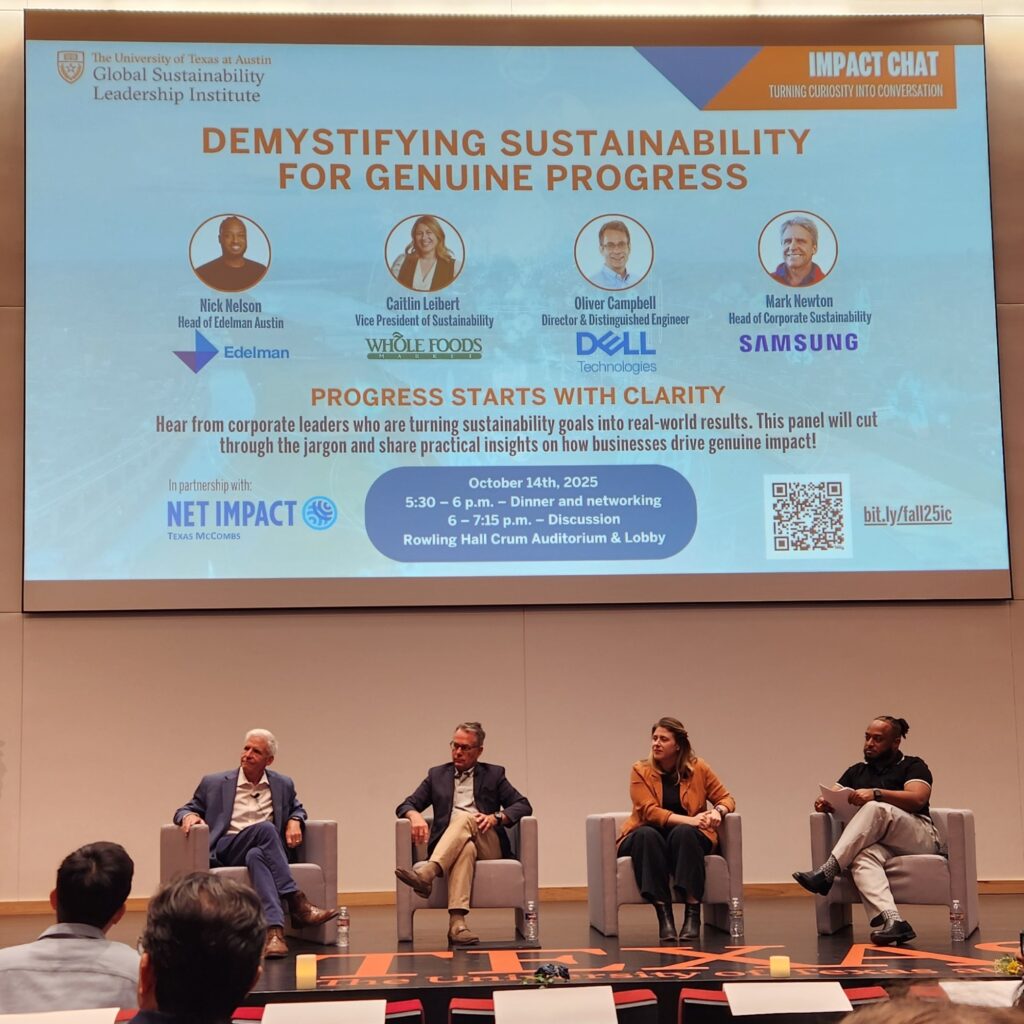
Strategy, Focus, and Framing the Case for Sustainability
Across the conversation, a recurring theme was making the business case for sustainability. That means understanding how environmental practices tie directly into efficiency, profitability, and brand value. As Mark Newton put it, “You have to help leadership understand that sustainability isn’t a chore — it’s an opportunity.”
Panelists agreed that success requires knowing how the business works — from supply chains to logistics to marketing — and speaking the right language for each audience. Whether you’re appealing to leadership, consumers, or investors, framing sustainability in economic and practical terms helps ideas take root.
They also discussed the “cost of trust” — the idea that consumers judge brands not just by their claims but by their consistency. Certifications like Energy Star or transparent reporting help translate technical sustainability into language customers can understand and believe in.
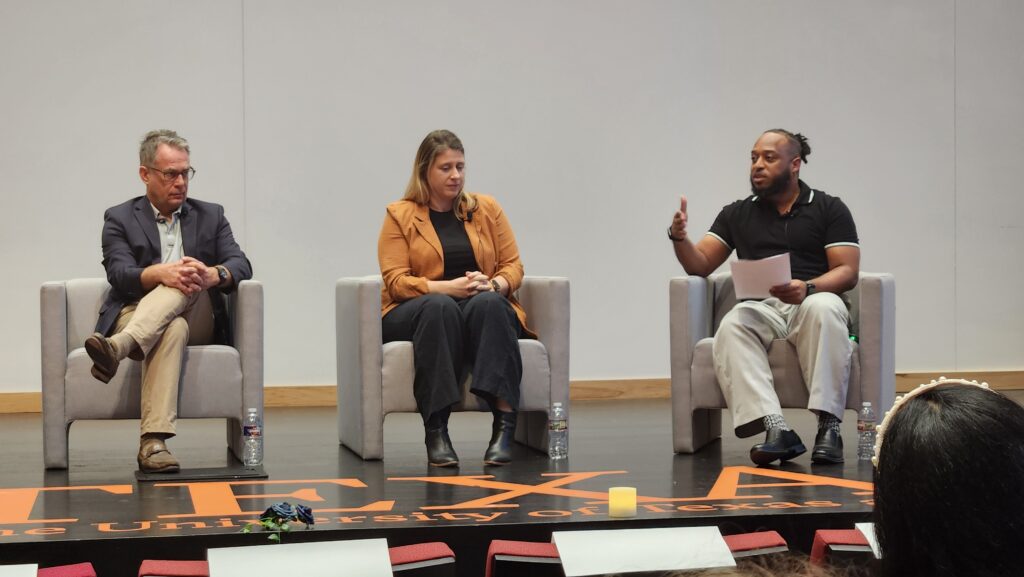
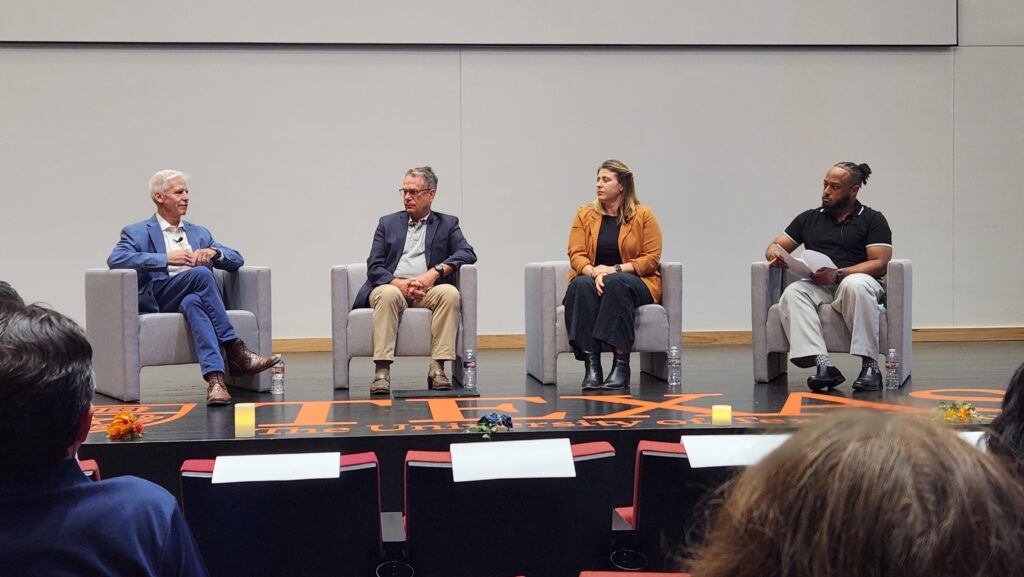
Every Job Can Be a Green Job
One of the most memorable takeaways was a statement the panelists shared in unison:
“Every job can be a green job.”
Whether you’re in accounting, law, manufacturing, or marketing — every profession has the potential to influence sustainability outcomes. With the right mindset, every role can become a lever for positive change.
Panelists also noted that companies must remain adaptable — responsive to shifting policy landscapes, technological innovations, and consumer expectations. From Dell’s material innovations to Samsung’s manufacturing strategies, efficiency remains at the heart of sustainable business fundamentals.
Conscious Consumer Responsibility
The conversation concluded with a powerful reflection on shared responsibility. Sustainability isn’t just the duty of governments or corporations — it’s also in the hands of consumers. As one panelist noted, “Our dollars are our voice.” Each purchasing decision contributes to the collective demand for more responsible, transparent, and sustainable business practices.
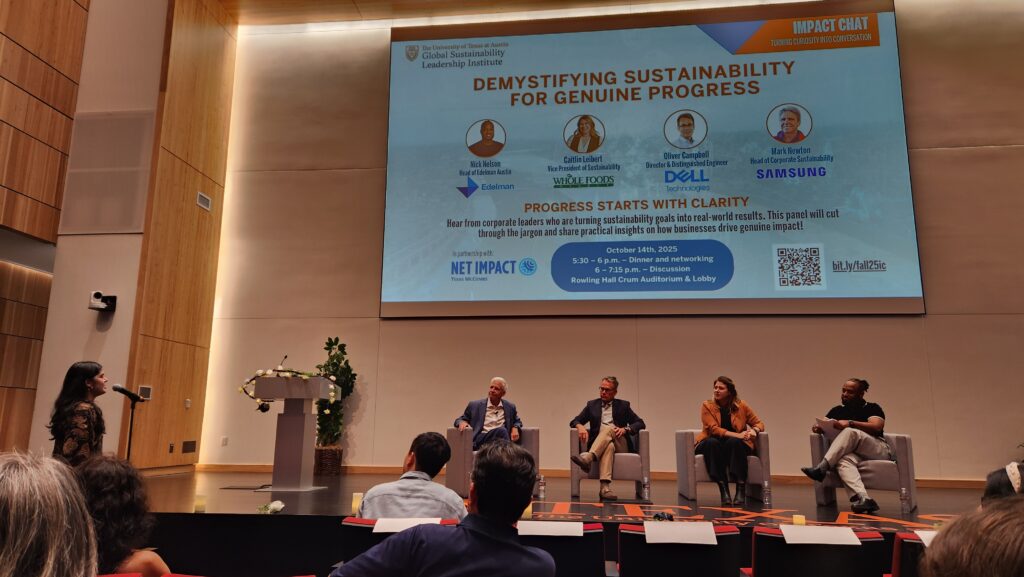
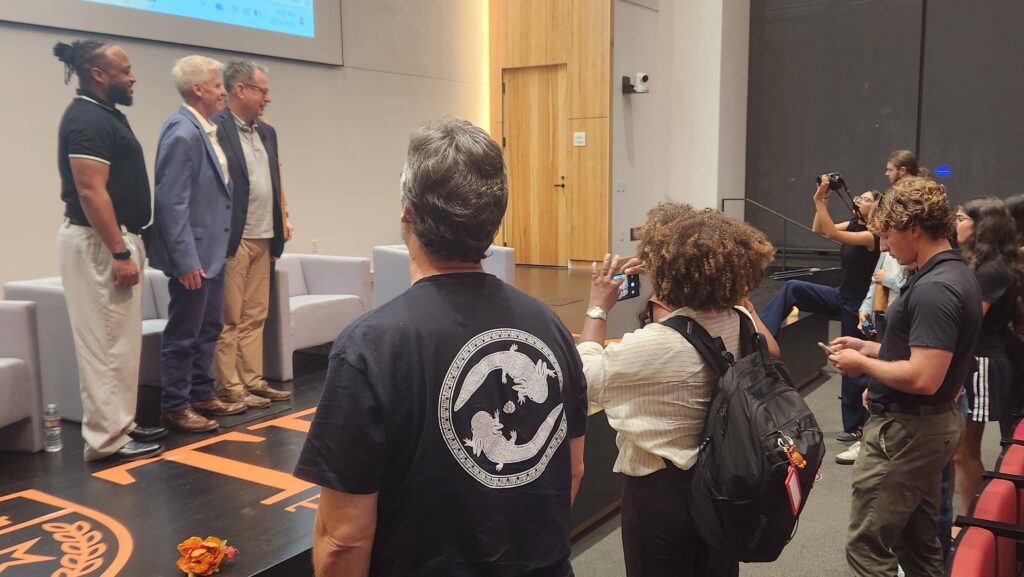
Final Thoughts
The evening reinforced a central truth: sustainability is as much about communication and culture as it is about technology and metrics. Real progress happens when leaders, employees, and consumers all play a part — when trust, transparency, and storytelling connect business goals with environmental integrity.
Kudos to UT Austin’s GSLI, Net Impact MBA chapter, and Edelman for bringing together such thoughtful voices. Events like this remind us that Austin’s sustainability community is not only growing but evolving — grounded in collaboration, authenticity, and genuine impact.
*Content was generated with AI based on my notes and direction, then edited and refined by me for accuracy.

